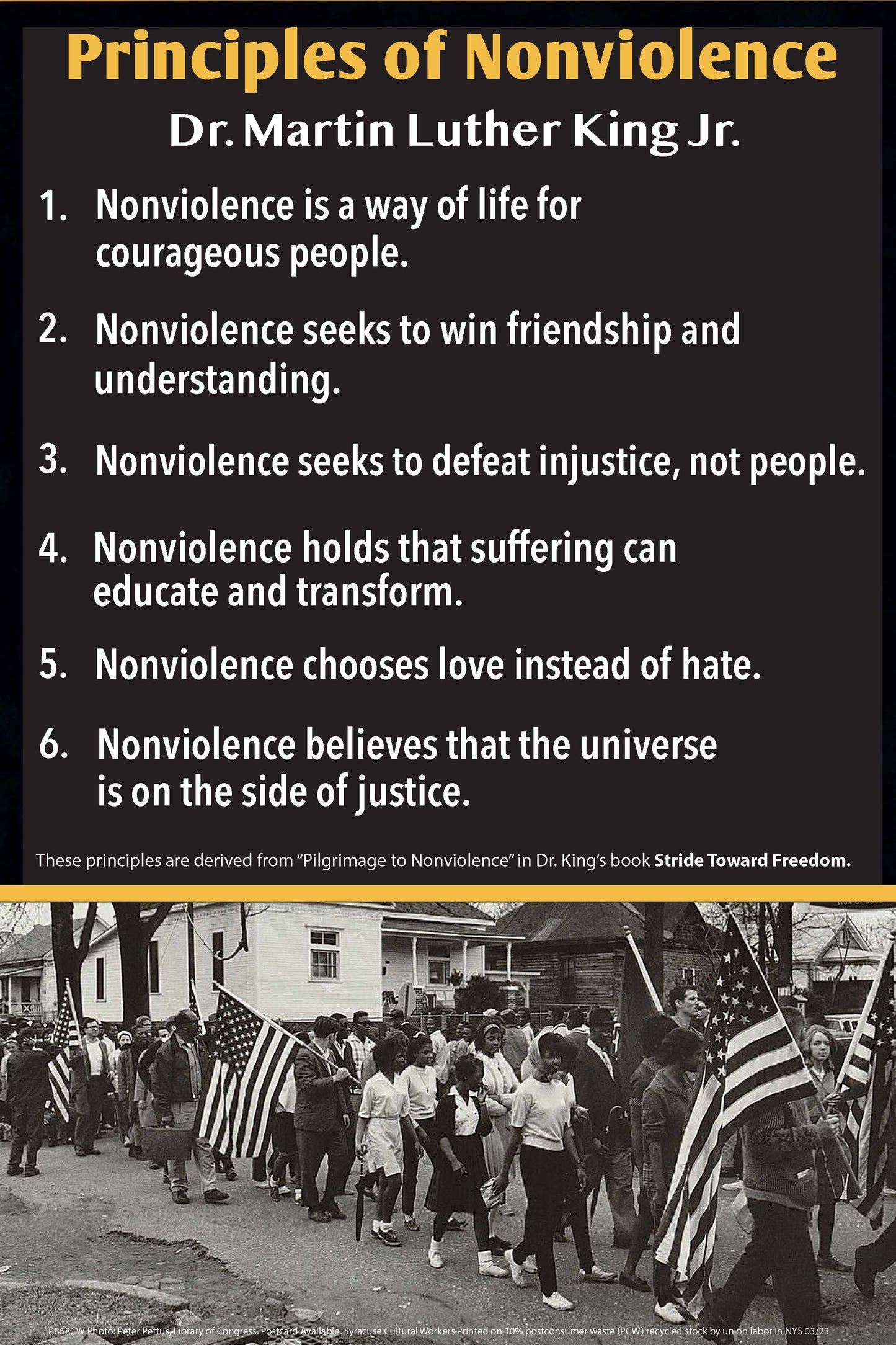Poster - MLK's Principles of Nonviolence
Poster - MLK's Principles of Nonviolence
SKU:P868CW
Dimensions: 12 in x 18 in
Couldn't load pickup availability
Share
Photo: Peter Pettus, Library of Congress
Rev. Dr. Martin Luther King Jr. was a civil rights leader who dedicated his life to speaking out against injustice, inequality, poverty and war.
A pastor, theologian, philosopher, an organizer, he was instrumental in dismantling legal segregation and the systems which limited Black voting rights. Active nonviolence was at the core of his theology and organizing strategy.
After the successful Montgomery Bus Boycott, Dr. King in consultation with Bayard Rustin, Ella Baker, and others founded the Southern Christian Leadership Conference (SCLC), which he led until his assassination.
His persistent and massive political organizing led to global recognition, changes in attitudes and the law, and what he termed "a coalition of conscience".
Notably, he was arrested for his activism upwards of twenty times and assaulted at least four times; he was awarded five honorary degrees; was named Man of the Year by Time Magazine in 1963; and he was the youngest person to have received the Nobel Peace Prize (at that time).
His assassination in 1968 ended too soon a mighty force for equality, nonviolence and justice.


